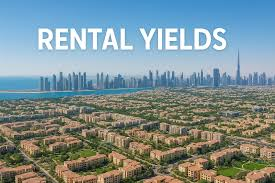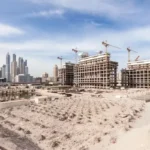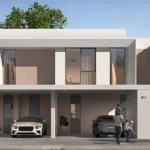Now Reading: 6 Smart Financing Options for First-Time Buyers in 2025
-
01
6 Smart Financing Options for First-Time Buyers in 2025
6 Smart Financing Options for First-Time Buyers in 2025

Table of Contents
The UAE’s real estate market, valued at AED 761 billion ($207.2 billion) in 2024, remains a hotspot for first-time buyers, with 8% price growth and 6–9% rental yields projected for 2025, per Kaizen AMS. Despite a 15% price correction due to a 182,000–210,000-unit supply surge, per Fitch Ratings, innovative financing options make homeownership accessible in Dubai, Abu Dhabi, and beyond.
Regulated by the UAE Central Bank and aligned with the Dubai 2040 Urban Master Plan, these options cater to residents and expatriates, offering flexibility amid rising property costs, per foxhills.ae. This guide, crafted in clear, SEO-friendly language with an engaging tone, outlines six smart financing options for first-time buyers in the UAE in 2025, supported by data, legal insights, and risk analysis, ensuring informed decisions in a dynamic market.
6 Smart Financing Options for First-Time Buyers

1. Conventional Fixed-Rate Mortgages
Fixed-rate mortgages, offered by banks like Emirates NBD and Mashreq, provide stable interest rates (4–5%) over 1–25 years, ideal for budgeting, per providentestate.com. UAE residents need a 20% down payment, expatriates 25%, for properties up to AED 5 million ($1.36 million), per UAE Central Bank regulations. Monthly payments remain consistent, shielding buyers from EIBOR fluctuations, per skyviewdubai.com.
- Why It’s Smart: Predictable payments simplify planning for AED 2 million ($544,518) Dubai Marina apartments, with 80% loan-to-value (LTV) ratios, per improperties.ae.
- Buyer Action: Secure pre-approval from banks, submitting income proof and AECB credit reports, per virtuzone.com. Budget 7–8% for fees (4% DLD, 1% mortgage, AED 2,500–3,500 valuation), per skyviewdubai.com.
- Example: A $544,518 apartment with a $108,904 down payment and $435,614 loan at 4.5% over 25 years has monthly payments of $2,424, yielding $38,116 annually if rented.
- Source: providentestate.com, skyviewdubai.com, improperties.ae
2. Islamic Financing (Murabaha and Ijara)

Sharia-compliant options like Murabaha (bank sells property at a markup) and Ijara (bank leases property) from Islamic banks like Dubai Islamic Bank avoid interest, offering fixed payments, per improperties.ae. Available to residents and expatriates, they require 20–25% down payments and offer tax benefits, per foxhills.ae. Financing covers up to 80% of AED 3 million ($816,778) properties, per arabmls.org.
- Why It’s Smart: No interest aligns with religious values, and predictable terms suit AED 1.5 million ($408,389) JVC apartments, per emirates.estate.
- Buyer Action: Apply with proof of income and residency, ensuring debt-to-income (DTI) ratios below 50%, per dubaihousing-ae.com. Verify Sharia compliance via bank certifications.
- Example: A $408,389 apartment with a $81,678 down payment and $326,711 Murabaha financing over 20 years costs $1,974 monthly, yielding $28,587 annually if rented.
- Source: improperties.ae, foxhills.ae, arabmls.org
3. Developer Financing Plans
Developers like Emaar and DAMAC offer flexible payment plans for off-plan properties, with 1% monthly installments and post-handover terms up to 6 years, per gaiarealty.ae. Down payments can be as low as 5–10% for AED 2 million ($544,518) properties in Dubai Hills, per terranovarealestate.ae. No bank pre-approval is needed, easing access, per foxhills.ae.
- Why It’s Smart: Lower upfront costs and extended terms suit first-time buyers for AED 4 million ($1.09 million) Palm Jumeirah villas, per paisabazaar.ae.
- Buyer Action: Verify developer escrow accounts with Dubai Land Department (DLD) and sign SPAs with RERA registration, per benhams.ae. Budget 4% DLD fees.
- Example: A $544,518 Dubai South apartment with a $54,452 down payment and 1% monthly payments ($4,537) over 5 years post-handover yields $38,116 annually if rented.
- Source: gaiarealty.ae, terranovarealestate.ae, paisabazaar.ae
4. Rent-to-Own (RTO) Agreements
RTO schemes, offered by developers like Meraas, allow tenants to allocate 10–20% of rent toward a down payment for properties like AED 1.2 million ($326,711) Al Furjan apartments, per foxhills.ae. Terms vary, with 5–10% initial payments and 3–5-year tenancy periods, per skyviewdubai.com. Ownership transfers upon final payment, per improperties.ae.
- Why It’s Smart: Builds equity without immediate large down payments, ideal for expatriates eyeing AED 1.5 million ($408,389) Business Bay units, per arabmls.org.
- Buyer Action: Sign RTO contracts with RERA-registered agents, ensuring clear terms, per benhams.ae. Maintain DTI below 50%, per dubaihousing-ae.com.
- Example: A $326,711 apartment with $32,671 initial payment and $2,000 monthly rent (20% to down payment) over 3 years yields $22,870 annually if rented post-purchase.
- Source: foxhills.ae, skyviewdubai.com, arabmls.org
5. Government-Backed Housing Loans
UAE nationals can access low-interest (0–2%) loans via the Sheikh Zayed Housing Programme, offering up to AED 5 million ($1.36 million) for purchases, AED 3 million ($816,778) for construction, or AED 2 million ($544,518) for land, per edb.gov.ae. Extended tenures (up to 25 years) and grants ease affordability, per providentestate.com. Expatriates are ineligible, per arabmls.org.
- Why It’s Smart: Subsidized rates make AED 3 million ($816,778) Abu Dhabi villas affordable for nationals, with minimal financial strain, per paisabazaar.ae.
- Buyer Action: Apply via Emirates Development Bank with UAE ID, income proof, and property details, per edb.gov.ae. Ensure DLD registration.
- Example: A $816,778 villa with a $122,517 down payment and $694,261 loan at 1% over 25 years costs $2,566 monthly, yielding $57,174 annually if rented.
- Source: edb.gov.ae, providentestate.com, arabmls.org
6. Seller Financing (Second Mortgage)
Sellers, often developers or investors, offer second mortgages for part of the purchase price, requiring 10–20% down payments for AED 1 million ($272,259) properties, per mullerandco.com. Flexible terms (3–5 years, 5–7% rates) suit buyers with limited bank eligibility, per dubaihousing-ae.com. The property secures the loan, per lexology.com.
- Why It’s Smart: Lower down payments and no bank approval make AED 800,000 ($217,807) JVC studios accessible, per emirates.estate.
- Buyer Action: Negotiate terms with RERA-certified agents, ensuring DLD-registered contracts, per benhams.ae. Verify seller credibility via DLD records.
- Example: A $217,807 studio with a $43,561 down payment and $174,246 seller loan at 6% over 5 years costs $3,449 monthly, yielding $15,247 annually if rented.
- Source: mullerandco.com, dubaihousing-ae.com, lexology.com
Legal and Tax Framework
- UAE Legal Framework:
- Property Ownership: 100% foreign ownership in freehold zones (e.g., Dubai Marina, JVC), per Law No. 7 of 2006. Expatriates restricted to freehold areas, per emirates.estate.
- Corporate Tax: 9% on taxable income above AED 375,000 ($102,103), 0% for QFZPs in DMCC/DIFC. File by September 30, 2025, per Federal Decree-Law No. 47 of 2022.
- VAT: 5% on commercial transactions, exempt for residential. Register if supplies exceed AED 375,000 by March 31, 2025, per Federal Decree-Law No. 8 of 2017.
- AML: KYC mandatory for transactions above AED 100,000, per Federal Law No. 20 of 2018. Penalties: AED 5 million ($1.36 million).
- Fees: 4% DLD transfer fee (split), AED 540–4,200 registration, 0.25% mortgage fee, 1% arrangement fee, AED 2,500–3,500 valuation, per skyviewdubai.com.
- Mortgage Regulations: 80% LTV for first-time buyers (AED 5 million properties), 25-year terms for nationals, 20 years for expatriates, per arabmls.org.
- U.S. Tax Framework:
- Reporting: Declare rental income via Forms 1040, 1116, Schedule E under FATCA. Income taxed at 10–37%, capital gains at 0–20%, per IRS.
- Foreign Tax Credit (FTC): Offset UAE corporate tax against U.S. liability.
- FEIE: $130,800 exclusion for earned income, not rentals.
- Golden Visa: AED 2 million ($544,518) investments qualify for 10-year residency, per emirates.estate.
Risks and Mitigation
- Market Volatility: Price corrections (15%) may reduce resale value, per Fitch Ratings. Focus on high-demand areas like Dubai Marina, per Kaizen AMS.
- Interest Rate Fluctuations: Variable-rate mortgages risk higher payments if EIBOR rises, per improperties.ae. Opt for fixed-rate or Islamic financing.
- Developer Risks: 40% of off-plan projects face delays, per William Blair. Verify escrow with DLD and choose developers like Emaar, per benhams.ae.
- High Fees: 7–8% additional costs (DLD, valuation) strain budgets, per skyviewdubai.com. Budget 25–30% of property price, per editorialge.com.
- U.S. Tax Burden: IRS reporting reduces returns. Maximize FTC with tax advisors, per IRS.
- Credit Risks: Poor AECB scores or DTI above 50% limit loan eligibility, per virtuzone.com. Clear debts before applying.
Step-by-Step Guide for U.S. First-Time Buyers
- Assess Finances: Calculate DTI (below 50%) and budget 25–30% for down payments and fees for AED 1.5 million ($408,389) properties, per editorialge.com.
- Research Options: Compare fixed-rate mortgages, Islamic financing, or developer plans for AED 2 million ($544,518) Dubai South units, per providentestate.com.
- Get Pre-Approval: Submit income proof, passport, and AECB report to banks for AED 3 million ($816,778) loans, per skyviewdubai.com.
- Select Property: Target freehold zones like JVC or Business Bay, verifying DLD registration, per emirates.estate.
- Secure Financing: Finalize mortgage or developer plan, signing RERA-registered SPAs, per benhams.ae. Pay 4% DLD and 1% mortgage fees.
- Ensure Compliance: Register for UAE VAT/corporate tax by March 31, 2025, if rental income exceeds $102,103, and U.S. taxes by April 18, 2025, with FTC, per FTA and IRS.
- Lease for Income: List properties on Bayut for 6–9% yields, targeting 85% occupancy, per propertyfinder.ae.
- Monitor Investment: Track appreciation via Property Finder, reinvesting rental income, per bayut.com.
Conclusion
The UAE’s 2025 real estate market, valued at AED 761 billion, offers first-time buyers diverse financing options, including fixed-rate mortgages, Islamic financing, developer plans, RTO agreements, government-backed loans, and seller financing. These options, supported by UAE Central Bank regulations and the Dubai 2040 Urban Master Plan, enable purchases of AED 800,000–5 million ($217,807–$1.36 million) properties with 6–9% yields, per Kaizen AMS. U.S. buyers can navigate risks like market volatility and high fees by securing pre-approvals, verifying DLD compliance, and leveraging FTC, ensuring long-term gains in a thriving market. rental income



















